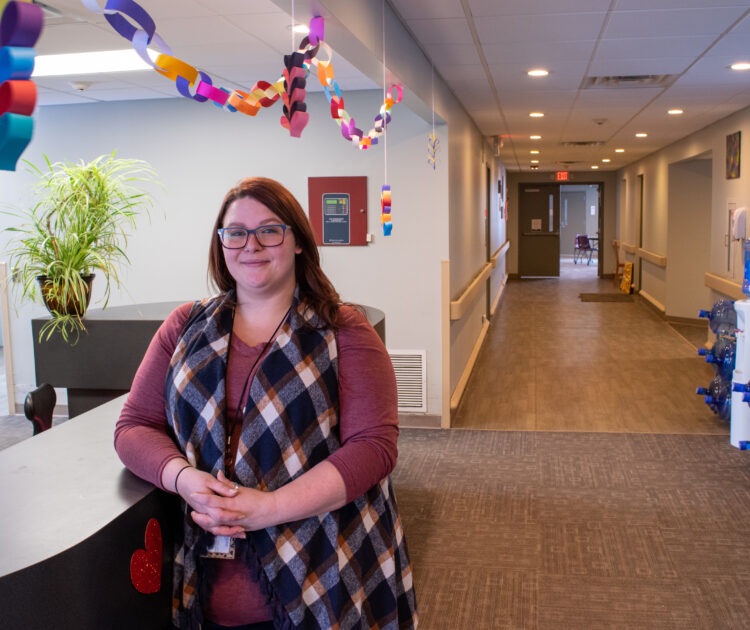Why Group Therapy Matters
Let’s face it—going to therapy isn’t always easy. To truly benefit, you have to open up about personal feelings and experiences, which can feel uncomfortable. Even talking to one therapist in a private session can make you feel vulnerable.
Therapy, however, is not limited to seeking counsel from an individual therapist. Group therapy provides one of the most effective ways to treat mental health and substance use issues. Led by one or more trained therapists, group therapy sessions bring together individuals who share similar challenges. While group therapy can be beneficial on its own, it is often used alongside individual therapy and medication for a well-rounded approach to treatment.
Yet, some may feel reluctant to participate in group therapy because of a heightened sense of vulnerability – more people, more exposure. But, if you can get past that feeling, the benefits of group therapy can be incredibly rewarding—especially for those struggling with depression, anxiety disorders, eating disorders, bipolar disorder, obsessive-compulsive disorder, social phobias and substance use disorders.
Benefits of Group Therapy
1. A Sense of Belonging
One of the greatest benefits of group therapy is realizing that you are not alone. Many people with mental health challenges feel isolated, which can make seeking help difficult. In a group setting, you connect with others facing similar struggles. This shared experience fosters trust and reduces feelings of judgment or shame.
2. Gaining New Perspectives
Group therapy exposes you to different viewpoints. Everyone has unique experiences and coping mechanisms. By hearing how others handle their challenges, you may discover new strategies that work for you. Additionally, group members are often at different stages in their recovery, allowing for mentorship and guidance.
3. Increased Accountability
Being part of a group encourages you to stay committed to your goals. While peer pressure is often seen as negative, in a therapy setting, it can be a positive force. Supportive group members offer motivation, feedback and encouragement, helping you stay on track in your recovery journey.
4. Building Confidence
Having a supportive group gives you a safety net. The encouragement of others builds self-confidence, making it easier to step outside of your comfort zone. Even if you face setbacks, knowing that your group is there for you provides reassurance and motivation to keep going.
5. Self-Discovery and Personal Growth
We all have blind spots—things about ourselves that we may not recognize or fully understand. Group therapy provides an opportunity to see yourself through the eyes of others. Honest feedback from group members can help you gain insight, overcome obstacles and grow as a person.
6. Support During Life Transitions
Many individuals in inpatient treatment rely on group therapy as part of their recovery. Transitioning to outpatient group therapy ensures ongoing support, helping maintain progress and providing a structured environment for continued growth.
7. Confidentiality and Trust
Confidentiality is essential in therapy—whether individual or group. While group members are not bound by the same legal obligations as therapists, most group therapy programs require participants to sign confidentiality agreements. This shared commitment to privacy creates a safe space where individuals feel comfortable sharing their thoughts and experiences.
Citizen Advocates offers individual, group and family counseling services for mental health and addiction treatment. If you or someone you know could benefit from group therapy, reach out today to start your journey toward healing.
Frequently Asked Questions (FAQ)
Q: How does group therapy work?
A: Group therapy involves a therapist leading a session with multiple participants who share similar challenges. Sessions may focus on specific topics, skills or open discussions where members share their experiences and support one another.
Q: Is group therapy as effective as individual therapy?
A: Yes! Group therapy is highly effective, especially when combined with individual therapy. It provides social support, diverse perspectives and shared experiences that individual therapy alone cannot offer.
Q: What if I’m too shy to speak in a group?
A: It’s normal to feel hesitant at first. Many people start by just listening until they feel comfortable enough to share. Therapists create a supportive environment where participation is encouraged but never forced.
Q: How do I find a group therapy session?
A: Citizen Advocates provides group therapy as part of our mental health and addiction treatment services. Click here to find the clinic nearest you.


 Previous Post
Previous Post

